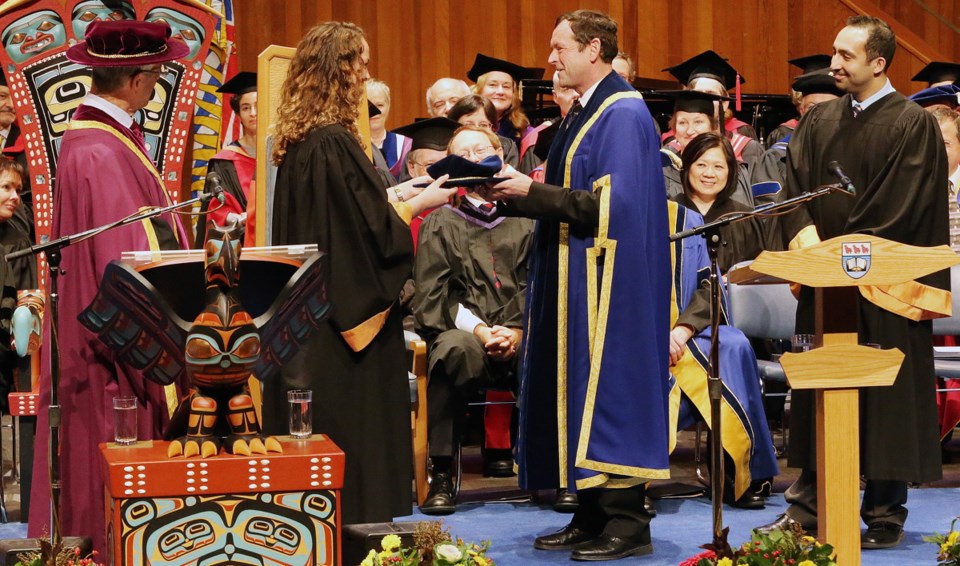The University of Victoria’s new president cautioned Tuesday against measuring the value of a post-secondary education solely by economic terms.
Jamie Cassels, who was installed as the seventh president and vice-chancellor at the start of fall convocation ceremonies, said the increasing focus on jobs and money is understandable in a time of global uncertainty.
“But to focus purely on the immediate bottom line misses the value of education as part of the absolutely essential longer gain for individuals and society,” he said in remarks to graduates and their families at the University Centre Farquhar Auditorium.
“Just as the value of an individual life cannot be assessed in accounting terms, so the value of university research and education cannot be calculated simply by measuring a graduate’s income and subtracting the costs of their tuition.”
To do so, he said, ignores “the extraordinary benefits to the quality of human life the world over resulting from research and education at universities driven by nothing more than pure curiosity, a passion for knowledge, the desire to explore the unknown and a thirst to make a difference in the world.”
Cassels’ comments echoed welcoming remarks by UVic chancellor Murray Farmer, who noted that universities have been under attack in some quarters for failing to groom all students to fill specific jobs.
“Essentially, [we’ve] been criticized for not completely focusing on workplace training and that, quite simply, misses the mark,” he said. “The role of universities is so much broader than job training.”
Farmer said today’s graduates are entering the workforce at an opportune time, with the world emerging from an economic recession and the baby boom generation heading into retirement.
“In the coming years, more than nine million Canadians will be retiring, far out-pacing the number of people entering the workforce,” he said.
But while preparing students for employment is critical, Farmer said the real value of post-secondary education lies in graduates’ capacity for learning and their mastery of critical thinking, analysis and judgment.
“These capacities are not finite. They will continue to grow along with you, allowing you to keep on adapting to our ever-changing world.”
Farmer said research shows that employers are looking for people with a capacity for life-long learning, problem-solving and critical thinking. “Employers say there are plenty of people who meet their needs on paper,” he said. “What they’re having trouble finding are people with broader skills — the work ethic, the attitudes, the ability to adapt to change — that you, our graduates, have clearly demonstrated in all you’ve done to achieve your degrees.”
Cassels joined the university in 1981 as a law professor. He served as dean in the faculty of law for two years and did a 10-year stint as vice-president academic and provost.
The university’s convocation ceremonies continue today with poet Patrick Lane and Harvard University chemist George Whitesides slated to receive honorary degrees.
About 1,200 degrees, diplomas and certificates will be granted over two days. The ceremonies are webcast live at uvic.ca/convocation.



